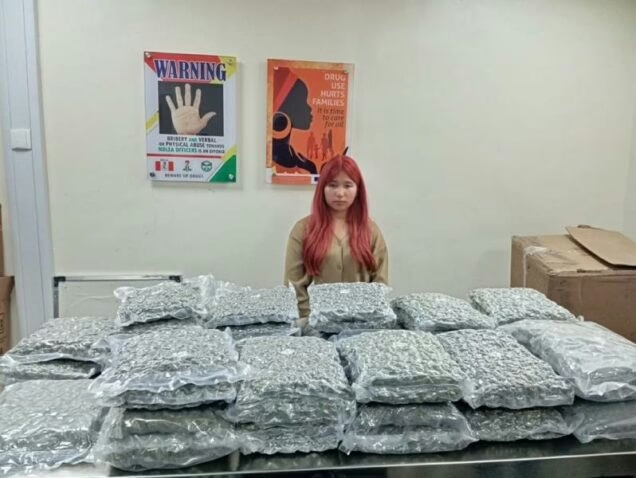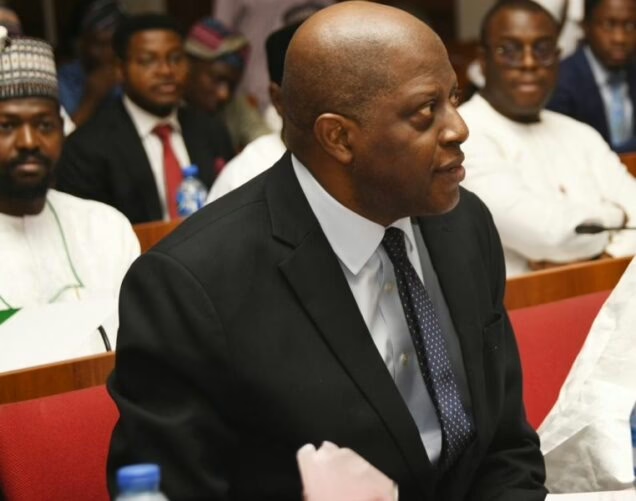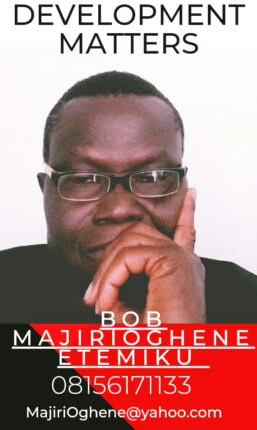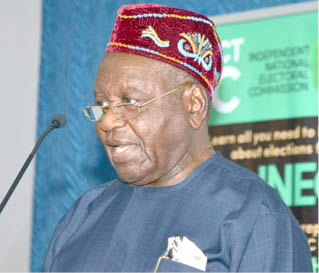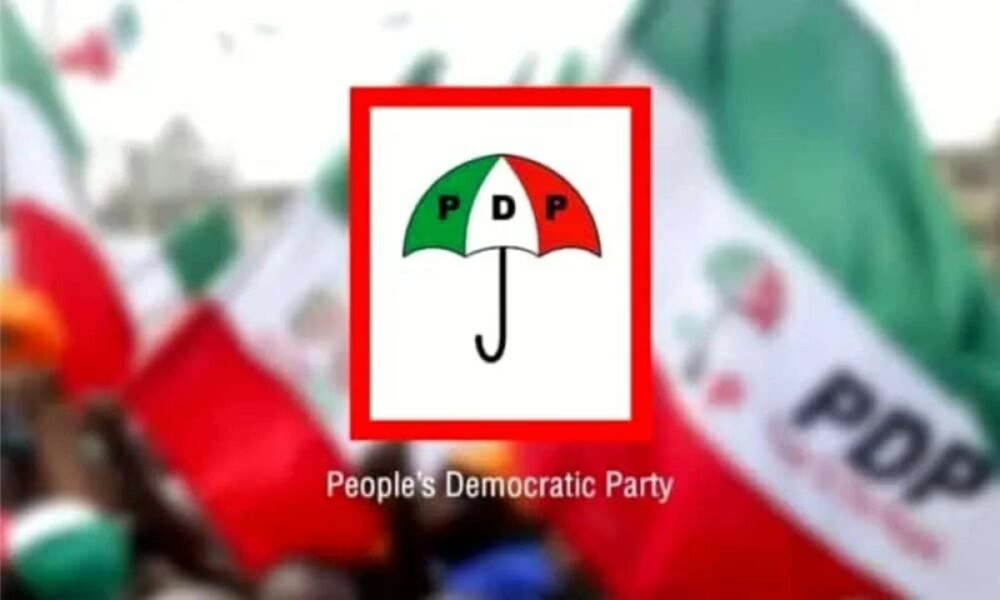.Blames persisting insecurity on hoarding of information from security agencies
The quest to tackle insecurity and biting poverty faced by the vast majority of the citizenry in Katsina State remains the immediate preoccupation of Governor Dikko Umaru Radda, who just commemorated his first year anniversary in office. In this interview with select journalists, Radda gives insights on measures his administration has so far put in place to address the challenges facing the people of the state, insisting that the creation of state police is in the best interest of the country. The Guardian’s ADAMU ABUH was there.
What are the challenges you faced within the last one year in office?
In Katsina State, we came in last year with a lot of issues, especially the most burning one, the issue of insecurity. We believe that we must do something as a state, not to fold our arms because security is being controlled at the centre or is the sole responsibility of the Federal Government. As a governor you cannot just fold your hands and allow criminals to be killing your people on a daily basis. You must do something to support what the Federal Government is doing to reduce the incident of insecurity in the state.
When we took over, we categorised about 23 local governments into two – frontline local governments, which are eight in number and then vulnerable local governments, those local governments that border frontline local governments. The issue of insecurity has reached to places like Charanchi, Ingawa, Bindawa and Kankia local government areas and is moving. But as Almighty Allah will have it, when we came on board, we set up our own local security and this thing has reduced drastically; war has moved down to the frontline local government areas with only maybe one or two vulnerable local government areas that are affected in one way or the other from time to time and their tactics have changed drastically from coming as they want, molesting people as they want. Now almost 90 per cent of those attacks are done at night and in very hard-to-reach areas that may take security agents about two to three hours to reach and in very bad terrains.
We took the war to the next level in which we have organised an operation in all eight local government areas where the security agencies are attacking the bandits; not waiting for the bandits to come and attack. That we have done for months and still appraising the performance and making assessment of that operation to see the success before we strategise on the next phase, which I don’t have to mention the details of what we are planning to do. But we have lost a number of people; we have lost a number of properties. And this keeps on occurring and the system and the terrains and the strategy looks almost the same, which the security agents will need to study and do something different from what we used to do before. We had a series of security meetings, which I don’t want to disclose. But we are also working towards eliminating the issues to the barest minimum. And we have been calling and seeking for partnership and collaboration with security agencies, which have the most superior fighting power that can match what the bandits have.
Just three days ago, we had a bandits’ attack where they used a rocket propeller and shot one of our APC vehicles, which caused the vehicle to summersault. But with the intervention of the security, we were able to restore the situation and recovered our vehicle and rescued the personnel.
So, the war is not as easy as people think it is; because it is a very difficult war in that you don’t know who is your friend and who is your enemy. You don’t know if you are sleeping with the enemy in your house. So, whatever strategy we put in place, in 30 minutes or one hour, the people in the bush may get the information before us. So, that is what makes the war difficult.
And I remember, our guest Speaker yesterday, Patrick Lumumba, said that everybody needs to be a policeman. It is only when all of us are policemen that we can be able to provide valuable information that can make the war against banditry, kidnapping and criminality easier to control.
And then that has not stopped us from pursuing some developmental projects to the benefit of the people of Katsina State. But it has been a major distraction. In our last council meeting, I told members of the council that we have not done enough because I thought the security will be much more than that but I could understand the challenges. But I don’t want to be carried away by what we have been able to achieve in the first year because I am looking ahead. This is not what I wanted Katsina to be.
Governor of Katsina State, Dikko Radda
So, what are the high and low points of your administration in the last one year?
I said at our last council meeting that we have not done well enough. But I could understand the challenges. But I don’t want to be carried away by what we achieved in the first year because I am looking ahead. This is not where I want Katsina to be. I have set a very high target and I am working to achieve that.
But my major challenge as governor is always to make sure that the right person gets the right thing. That is why I moved away from an era of lobbying, political considerations, favouritism and made sure that my approach to governance is to reach the people at the bottom of the pyramid. I was so happy at this chamber when we had the farewell event for 41 students that we took to Egypt to enroll for the MBBS degree programme, who came from the public schools, who are the children of the poor without the influence of one single individual in this state. They got the opportunity purely based on merit. They sat for the exams and they passed the examination and they got it. The opportunity was for everybody because we allowed every local government area to produce the best they have.
When we recruited the teachers in the state, I did not allow any member of my cabinet or House of Assembly to manipulate or to influence the decision of who should be picked. We allowed them to sit for examinations and everybody was given the opportunity to get permanent and pensionable appointments and over 7,000 teachers were employed.
The first thing I did immediately when I was sworn in was to dissolve all the permanent secretaries and subject them to write an examination. So, if I could start from the top, anybody from the lower level would have to sit up and know that we are not here to joke. That was my happiest moment within the period.
But the saddest moment of my administration within the last one year was when I received calls that 20 people were killed in a place with their houses burnt; some of their women were raped and some were kidnapped. The only way you can appreciate that is to place yourself in their conditions and you will feel it. I have already developed such a feeling and it remains with me because my elder brother was killed by bandits; same father, same mother. He left behind 27 children and three wives. And I don’t think there is any citizen in this state, who is not in one way or the other, either his relative or somebody close to him, affected by these bandits’ activities. That does not give us good sleep and it even reduces our appetite for food. Sometimes you feel like why should I be here when people are being killed and I can’t do anything? That was what informed the debate for State Police.
Before I became the governor, I was one of the critics of State Police but I have seen the need for it because I have seen the efforts the Katsina State Community Watch Corps are making towards tackling the spate of insecurity in the state with utmost courage, determination and sincerity. It was what informed my decision to call on the President to make sure that any police officer from the rank of the Assistant Superintendent of Police (ASP) should be posted to his state of origin. Any military officer at the junior level should be posted to their state of origin. Why? Because they would be able to protect the lives of their people because they would naturally have affection for them because they are their relatives, brothers or sisters. But there are some people who don’t have anything at stake.
So, I think the debate for State Police is apt now and we need to see the need for it. I keep wondering when people say that the state governors are going to manipulate state security apparatus to oppose their opponent. Were we not in Nigeria when the then president Goodluck Jonathan, with all the security agencies at his disposal, lost an election? If you say an elected governor is going to manipulate and use the State Police apparatus against his opponents, what makes Mr. President not to do a similar thing since he has control of the security agencies at the federal level? For me, it is about leadership; it is about responsibility for you to do the right thing and at the right time.
A leader should be guided by the laws, rules and regulations and the constitution of Nigeria, with no fear or favour, since we all swore to abide by the dictates of the constitution to do that. It is the responsibility of the leader to use the security apparatus at his disposal appropriately and for the benefit of the nation because if you are a governor today and you use the State Police against your opponents, by the time your tenure ends and you are not the governor and your opponent maybe becomes the governor, he will use it against you too. Why can’t you do the right thing when you are there as the governor of the state? So, it is about responsibility and having responsible leaders.
Your administration made efforts to expose those fueling and sponsoring terrorism, banditry and kidnapping in the state. Is it still in your plans?
I hold the security agencies in high esteem because they too are being killed on a daily basis in their bid to curb the insecurity in the state. But the point is there is no set or categories of people who are not involved in this menace. What is hidden here? Who was not arrested? Different categories of people were arrested on allegation of being involved in banditry and criminality and many other vices, even here in Katsina. So, I don’t know why people should be bothering themselves when I say this except some people want to fuel it. But I remain here and I say that different categories of people whether in government or elsewhere are involved. Why I say so is because there are a number of arrests that were made. There are a number of security reports that we have. And even in prison now, when you go there you will see some people that were arrested. They may be people from the security agencies, government officials and traditional rulers.
But the issue is we should understand that we have good people everywhere but you can’t eliminate bad eggs. And the bad eggs are with us. Why should we meet and then you get to hear the information from our discussion after an hour or 30 minutes out there among the criminals? It means someone from those people that attended the meeting must have leaked the information. If there is an operation, the bandits will hear of it before you get there. So, you must ask yourself who told them that? It is not rocket science; it is logic.
We don’t want to say the truth in Nigeria because we don’t want to get to the root of the problem. If I am at fault I should tell myself that I am wrong, examine myself and forge ahead. But when we are denying information and denying the truth, it will always turn back against us. And this is exactly what happens even at the local level. You know the son of your neighbour and you know that he is involved but you don’t want to tell the truth. If your in-law is involved, you don’t want to say it because he is your in-law. We must tell ourselves the truth before we examine ourselves. There is no organisation that doesn’t have bad eggs in it. We should fish it out and deal with it. But when we keep on hiding things, the problem remains continuous and there will be no time that it will end. So, it is high time we told ourselves the truth. When we tell ourselves the truth, we will correct. We are here today; somebody can challenge me for doing something wrong and that may be a basis for my correction. Then, why should we be hiding things to ourselves? And that is one of the major problems that are affecting this country.
Some traditional rulers were placed on surveillance for allegedly colluding with bandits and kidnappers. What informed that?
Yes, we arrested a representative of a village head in Guga village in Bakori local government of the state. He was arrested because of his involvement with the bandits. He was given N700,000 to allow bandits to come to his village and kill over 30 people.
What efforts have your administration made to tackle poverty in the state?
We are committed to the task of tackling poverty in the state because you can see it on the faces of the people as you move around the state. We understand that the problem of poverty is tied to the problem of banditry, kidnapping and other criminalities that we are experiencing. If a woman can be given N500 to transport petrol in a disguised manner to give bandits in the bush, if a young man can be recruited for N2000 to provide information on his neighbour, you cannot say there is no poverty here because if there is poverty, it could make people to lose their conscience.
So, we said we would approach this challenge in two ways – through kinetic approach and non-kinetics approach. And then if you are unable to stop poverty by providing job opportunities to the people, it would be very difficult to address the problem of insecurity. As you kill the bandits, you will get more recruits into the system.
So, we have come up with a lot of strategies and that was the reason we came up with the Katsina State Enterprise Development Agency to provide support to our MSMEs, especially micro and small businesses; and the government has set aside N3.4 billion in collaboration with the Bank of Industries (BoI). Just last three weeks we launched the training of mechatronics for 3,000 youths across this state that we would attach to various mechanic workshops and after their graduation, we would support them to open their own workshops and provide employment also to other youths in the state.
Right now we are trying to put in place community centres in all our villages to be saddled with the development, provision of employment and support to those young men and women in those localities and we are concentrating more on the frontline and vulnerable local governments so that we can address this issue squarely; because we are sure that if we don’t address the issue of poverty, we will go nowhere in tackling insecurity.
Agriculture is our major employer of labour. That is why we created the Katsina State Irrigation Authority so that we have all year round farming in the state. That would reduce redundancy and keep everybody busy. As it stands now, we only have three to four months farming period after which people would be out of business for eight months. And then you have to add value to what you produce. The essence of us adding value to our agricultural produce is to provide proper education to our farmers on how to go about taking agriculture as a business. When we came in, we met only 22 extension workers in the state but we have improved it by 722 extension workers. We just gave each of them a motorcycle and other equipment to allow them to work and to move around to enlighten farmers on the need to improve their productivity.
Just yesterday we launched 20,000 metric tonnes of fertilizer for distribution at a much subsidised rate and we gave them just before they start farming activities because it would be very wrong to give fertilizer to farmers two to three months from now.
These are some of the things we are doing to improve their livelihoods. In the last three months we supported more than 3000 farmers and we also supported women and youths with items close to N2.5 billion. And then on the interim level, we provided foodstuffs because we have reached a stage where people are looking for food to put in their mouths. So, you have to solve that as a preliminary step before you go about solving the problem permanently.


